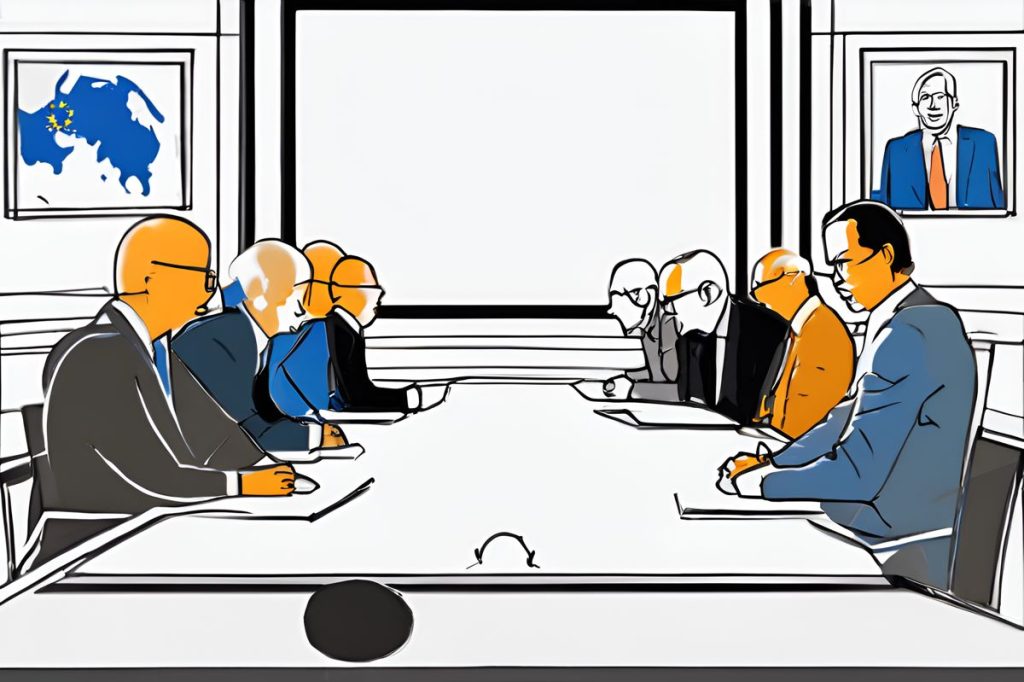Cyprus calls on the EU for greater support in managing the migrant influx, urging for secure zones in Syria, financial aid to Lebanon, and sustainable migration strategies. President Nikos Christodoulides highlights the country’s frontline role, emphasizing the need for EU solidarity in addressing immediate pressures and root causes of migration waves.
What support has Cyprus requested from the EU to manage the migrant influx?
Cyprus has called for the EU to provide greater solidarity and support to manage the increasing migrant influx. Key requests include:
– Creating secure zones within Syria for civilians to find refuge.
– Offering financial assistance to Lebanon for better migration management.
– Collective EU efforts to maintain sustainable, humane migration strategies.
Addressing the Migration Challenge
In a recent assembly with EU leaders in Vienna, Cyprus’ President Nikos Christodoulides emphasized the country’s anticipated role as a front-line state in managing increasing migrant flows. The island-nation has been at the forefront of migration from the Middle East, particularly from Syria, due to its geographical proximity. The president highlighted the crucial need for the European Union to offer substantial support, not only in terms of handling the immediate pressures but also in addressing the root causes of these migration waves.
In discussions with representatives from the EU, Christodoulides has firmly advocated for the creation of secure zones within Syria. This initiative aims to provide sanctuaries where civilians can find refuge without needing to flee their homeland. Furthermore, he has urged for substantial financial assistance to Lebanon to strengthen its capacity for effective migration management, a move that could alleviate some of the strain on Cyprus.
Enhancing EU Defense and Economy
During a special dinner with EU dignitaries, hosted by the President of the European Council and the Austrian Chancellor, Christodoulides took the opportunity to present his views on other pressing matters. He argued for bolstering the EU’s defense and security through collaborative actions and the development of programs and capabilities. Such steps are seen as essential for maintaining the Union’s strategic autonomy and resilience against various threats.
Turning to economic concerns, the Cypriot leader stressed the importance of enhancing the EU’s competitiveness. He suggested that deepening the European single market, strengthening services, and cutting administrative burdens, particularly for SMEs, would be key factors in achieving this goal. It is believed that these measures would contribute to long-term sustainable growth and stability across the member states.
Migration Dynamics: A Closer Look
Cyprus, situated less than 100 miles from the Syrian coast, has seen a marked increase in the number of irregular migrants, especially from Syria, via Lebanon. The geographic position of Cyprus makes it one of the first EU territories that migrants from the Middle Eastern countries encounter. This has resulted in hundreds of arrivals in recent days, challenging the country’s reception capacities and resources.
In response to this situation, President Christodoulides has engaged in talks with both EU officials, including the Commission President, and Lebanese authorities to seek collaborative solutions and support. The aim is to ensure that while Cyprus remains a welcoming haven for those in need, it also requires the collective effort of the EU to maintain a sustainable and humane approach to this complex issue.
Strategic Partnerships and Dialogues
The assembly in Vienna was not just about addressing the migration crisis but also about setting the EU’s strategic agenda for the coming five years. President Christodoulides, along with leaders from countries like Denmark, Malta, and Slovenia, discussed various topics that would shape the future of the European Union.
In the context of these discussions, the Cypriot President put forward his perspective on defense, security, and economic growth, advocating for a unified and robust approach. By sharing insights and forging consensus among member states, the EU looks to navigate the challenges ahead with solidarity and shared resolve. Christodoulides’ engagement in these high-level talks underscores Cyprus’s active role in shaping EU policy and its commitment to collective action in the face of regional and global challenges.
What support has Cyprus requested from the EU to manage the migrant influx?
Cyprus has called for the EU to provide greater solidarity and support to manage the increasing migrant influx. Key requests include:
– Creating secure zones within Syria for civilians to find refuge.
– Offering financial assistance to Lebanon for better migration management.
– Collective EU efforts to maintain sustainable, humane migration strategies.
What role does Cyprus play in managing migrant flows from the Middle East?
Cyprus serves as a front-line state in managing increasing migrant flows from the Middle East, particularly from Syria, due to its geographical proximity. President Nikos Christodoulides highlights the crucial need for the European Union to offer substantial support in handling both the immediate pressures and root causes of migration waves.
What other issues did President Christodoulides address in discussions with EU leaders?
In addition to addressing the migrant influx, President Christodoulides advocated for enhancing EU defense and security through collaborative actions, as well as boosting the EU’s competitiveness by deepening the European single market and cutting administrative burdens for SMEs to achieve long-term sustainable growth.
How is Cyprus working with the EU and Lebanon to address the migration situation?
President Christodoulides has engaged in talks with both EU officials and Lebanese authorities to seek collaborative solutions and support for managing the migration situation. Cyprus aims to maintain a sustainable and humane approach to the issue with the collective effort of the EU and regional partners.

